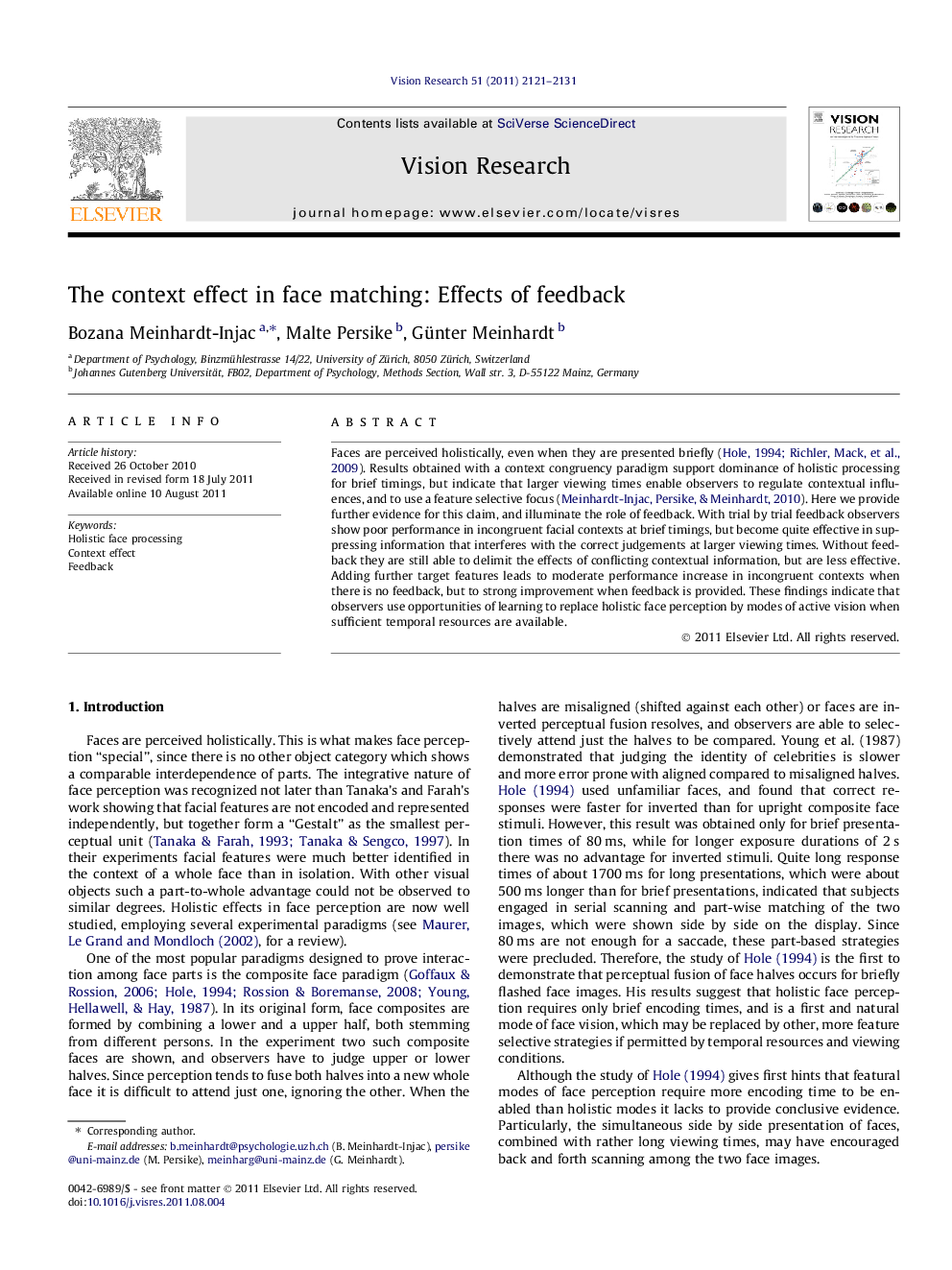| Article ID | Journal | Published Year | Pages | File Type |
|---|---|---|---|---|
| 4034205 | Vision Research | 2011 | 11 Pages |
Faces are perceived holistically, even when they are presented briefly (Hole, 1994 and Richler et al., 2009). Results obtained with a context congruency paradigm support dominance of holistic processing for brief timings, but indicate that larger viewing times enable observers to regulate contextual influences, and to use a feature selective focus (Meinhardt-Injac, Persike, & Meinhardt, 2010). Here we provide further evidence for this claim, and illuminate the role of feedback. With trial by trial feedback observers show poor performance in incongruent facial contexts at brief timings, but become quite effective in suppressing information that interferes with the correct judgements at larger viewing times. Without feedback they are still able to delimit the effects of conflicting contextual information, but are less effective. Adding further target features leads to moderate performance increase in incongruent contexts when there is no feedback, but to strong improvement when feedback is provided. These findings indicate that observers use opportunities of learning to replace holistic face perception by modes of active vision when sufficient temporal resources are available.
► Feature based face processing requires longer encoding times than holistic face processing. ► Feature certainly enables context control. ► Stronger holistic effects in the absence of feedback.
